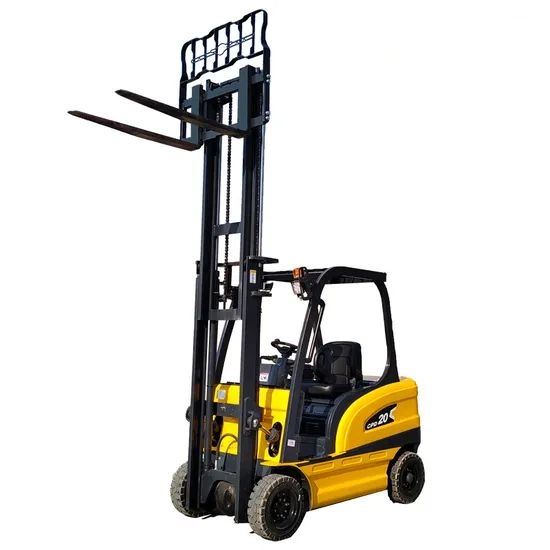Core Conclusions
The operational taboos of electric forklifts are concentrated in four key dimensions: electrical systems, operational actions, charging and shutdown procedures, and personnel & environmental factors. Avoiding these taboos can directly reduce fault codes and safety risks.

I. Taboos Related to Electrical Systems
- It is prohibited to use non-original chargers or chargers with mismatched specifications, as this may burn out the electronic control system and trigger fault codes.
- Charging while operating the forklift is not allowed, nor is frequent plugging and unplugging of the charging connector during charging, to prevent circuit short circuits.
- Forced operation when the battery level is below 20% is forbidden; low-battery operation is likely to cause motor overload alarms.
- Random disassembly or modification of electrical circuits or sensors is not permitted, as this may lead to abnormal signals and false alarms.
II. Core Taboos in Operational Actions
- Overloading, operating beyond the maximum lifting height, slanting/pulling or tilting loads, and single-side load bearing are strictly prohibited, to prevent overload of the hydraulic system and motor.
- Sudden starts, sudden stops, and sharp turns are forbidden, to avoid impacts on the electrical system and damage to mechanical components.
- Driving or operating the forklift on roads with an incline of more than 5° is not allowed; potholes and sharp obstacles should be avoided to prevent sensor damage caused by vehicle vibration.
- It is strictly prohibited for personnel to get on or off the forklift when the forks are not on the ground, or to stand or pass under the forks. This is not only a violation of regulations but also likely to trigger equipment protection fault codes by mistake.
- Continuous operation exceeding the equipment's rated duration (usually ≤ 2 hours) is not permitted, nor is forced operation when the equipment is faulty (e.g., abnormal noises, alarms).
III. Taboos in Charging and Shutdown
- Charging in enclosed, flammable, or explosive environments is forbidden. Do not cover the charger or the forklift battery area during charging to avoid overheating alarms.
- Connecting or disconnecting the charging connector without turning off the power is not allowed, nor is leaving the connector plugged in for a long time after the battery is fully charged, to prevent battery power loss or short circuits.
- When shutting down the forklift, it is forbidden to park with the forks suspended in the air. Turning off the power before the forks are on the ground is likely to cause abnormal pressure in the hydraulic system.
- Random disabling of equipment protection functions (such as overload protection and overheating protection) is not permitted, to avoid man-made faults.
IV. Taboos Related to Personnel and Environment
- Operating the forklift without a valid certificate is forbidden, as is operating it when fatigued, under the influence of alcohol, or after taking medications that affect operation.
- Adjusting the fork height or making sharp turns while the forklift is moving is not allowed, to avoid uneven force on the equipment caused by load deviation.
- Using the forklift to collide with goods, shelves, or other equipment is strictly prohibited, to prevent deformation of mechanical components and misalignment of sensors.
- Long-term operation in humid or waterlogged areas is not allowed, to avoid short circuits caused by moisture in electrical components.


